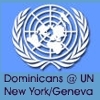

| BRIEFING - May 11 , 2011 | To learn more about the Millenium Development Goals, click on the graphic Past Briefings: April 27, 2011 April 6, 2011 March 23, 2011 March 9, 2011 February 9, 2011 January 26, 2011 January 12, 2011 December 29, 2010 December 15, 2010 December 1, 2010 |
||
Protecting rights of indigenous peoples protects the earth
The Commission on Sustainable Development (CSD) was established by the United Nations General Assembly in December 1992 to ensure effective follow-up to the UN Conference on Environment and Development, held in June 1992 in Brazil (the Earth Summit). It was at this conference that the Earth Charter was adopted. In June, 2012, representatives of the world’s governments, as well as members of civil society, will gather in Brazil once again for the RIO +20 conference, which, among other things, will take stock of where we are as a global community in terms of this historic Charter. Among the many responsibilities of CSD is monitoring and reporting on implementation of the Earth Summit agreements at the local, national, regional and international levels. The focus of the 19th session of CSD, which took place May 2-13 here in New York, was a review of the 10-Year Framework of Programmes in support of regional and national initiatives to facilitate the shift towards a more sustainable pattern of production and consumption in the service of a more genuine and inclusive economic and social development. One of the primary thematic issues dealt with during the CSD was mining and its impact on the environment and on the rights of indigenous peoples. Our world today is home to an estimated 370 million indigenous peoples, found in more than 90 countries. These peoples, whose Earth-Wisdom we so desperately need, are among the most marginalized and vulnerable populations in our world today. They regularly face discrimination, lack access to basic services, and are disproportionately affected by climate change, deforestation and environmental degradation and exploitation. In the name of “development,” their lives are threatened, and the very existence of their communities is jeopardized by the corporate world and its insatiable greed for the minerals over which these peoples have been careful custodians for centuries. In 2007, the UN adopted the Declaration on the Rights of Indigenous Peoples. One of the cornerstones of this declaration is the obligation placed on governments and corporations to obtain the “free, prior and informed consent (FPIC),” of the indigenous population, before any action is taken in relation to mining, harvesting of timber, or the use of plants and other living things found within indigenous territories. There is significant movement to have this right recognized as part of human rights law, and in some cases it has already been incorporated into national constitutions. Indigenous peoples rarely benefit from large-scale development on their traditional lands. The dominant model of development gives priority to economic growth at the expense of environmental sustainability, equity, social justice and respect for human rights. This push to accelerate economic growth increases demand for minerals and other primary materials. Companies often pressure States for access to resource-rich land. Fragile environments and the people whose lands contain these resources are thus put at risk. There will be further discussion on the issue of mining and free, prior and informed consent at the Permanent Forum on Indigenous Issues, which meets following the Commission on Sustainable Development. On another note… I will be traveling to Nairobi, Kenya on May 15 to attend the assembly of Dominican Sisters of Africa. The theme for their meeting is “Shaping Our Dominican Future in Africa with Realism, Daring and Hope.” I look forward to the opportunity to hear first-hand from our sisters what their experience is with several significant issues we deal with here at the UN—namely, the Millennium Development Goals, the issue of mining and its impact on the lives of the people as well as their environment, and HIV/AIDS. More on this visit in future Briefings… And, finally… Over the past several months, you have read Briefings prepared by Jacqui Ryan, our Dominican sister from New Zealand. Jacqui will be leaving on May 22 for a brief visit to the West Coast, and then back home to her native land. It has been a joy to have Jacqui working along with me. She has been a great help here in the office, covering meetings that I would otherwise be unable to attend, and sharing with me and my colleagues her wonderful New Zealand wit! But more importantly, Jacqui’s presence served as a gracious reminder that the work done here at the UN is our work as a worldwide Dominican Family. It meant a great deal to me to have Jacqui here. Now I know that I have a colleague in New Zealand who can share with the Dominican Family in that part of our world, the work we try to do here in all our names. So… Thank you, Jacqui, and…
|
Dominican Leadership Conference
Building relationships and collaborating in the mission of preaching the Gospel
29000 West Eleven Mile Road
Farmington Hills MI 48336
248-536-3234 Contact: Executive Director
